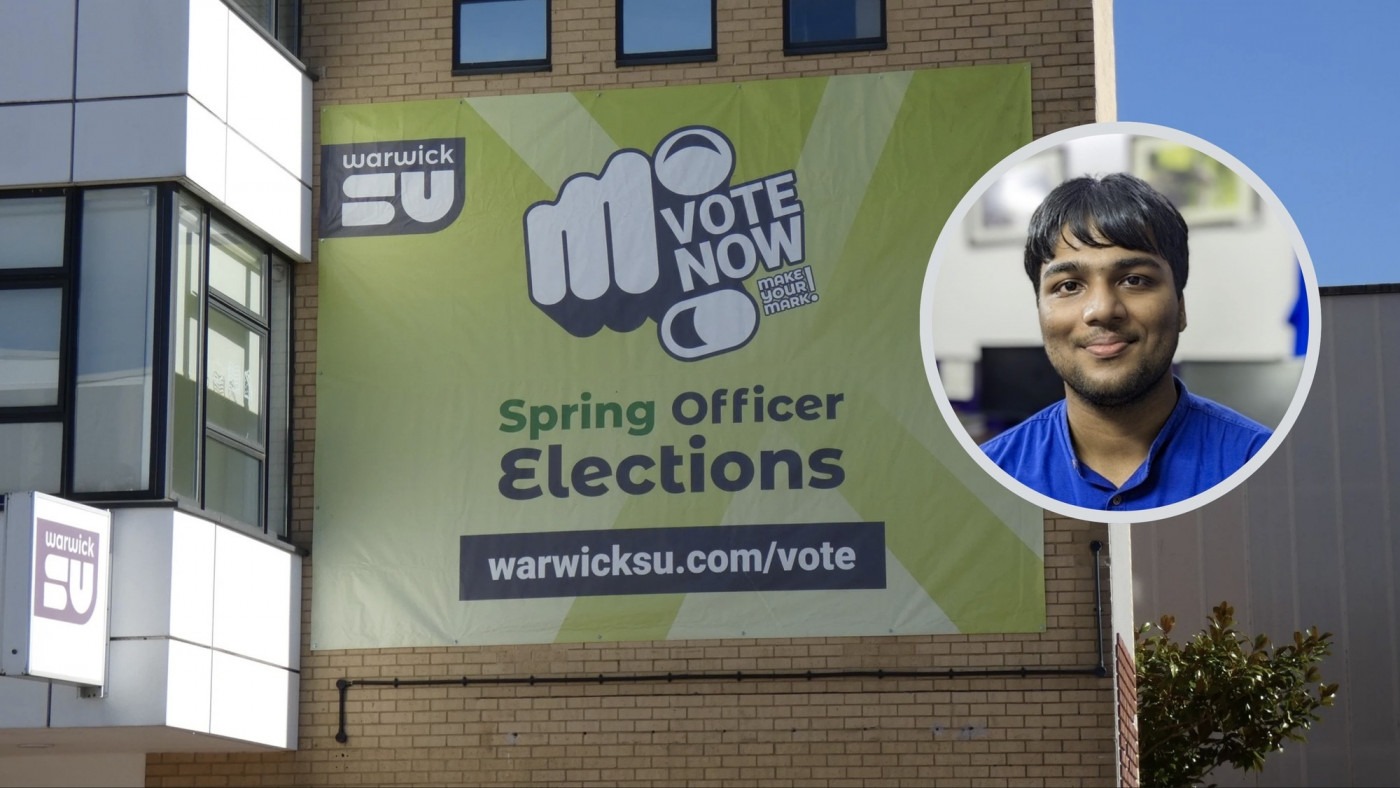SU Spring Elections 2025 Interviews: Anish Pani, VP Postgraduates
In the run-up to the Warwick Students’ Union (SU) Spring Elections, The Boar and RAW 1251AM collaborated to offer all Full-Time Officer (FTO) candidates the opportunity to be interviewed.
Anish Pani, one of twelve candidates in the race for Vice President for Postgraduate Students, spoke to RAW 1251AM. The interview covered his plans to design a “departmental representation model” in addition to enhancing financial and career support for postgraduates.
What are your key manifesto pledges?
“First of all, there is a huge gap in the amount of opportunities between postgrad and undergrad,” Pani established. He outlined his plans to “design a departmental representation model” which would allow postgraduate students to “harmoniously collaborate” with undergraduates.
Secondly, the candidate pledged to ensure that all students “can contribute to this society”. What he described as an “action-oriented model”, his plans sought to empower students to offer their own “innovative ideas” to university life, identifying high rental fees and “lots of anomalies regarding visa sponsorship opportunities” as barriers to student participation.
Many postgraduates feel disengaged from the SU, societies, and sports clubs, especially in relation to undergraduate students. How would you make the SU more inclusive to postgraduates?
What he called “humble backgrounds”, Pani felt the “majority of postgrad students come from middle to upper-middle income” families. These “financial constraints”, he explained, had deterred postgraduates from involving themselves in sports and societies on campus.
From there, the candidate advocated for efforts to alleviate these difficulties by “making grocery stores more affordable” and working with the University to offer more grants and scholarships for postgraduate students.
He also drew attention to the difficulties some postgraduates face in “acquiring internships” without “significant experience” from their undergraduate degrees, an area where he would implement greater support if he were elected.
What new services, provisions, or spaces would you aim to introduce to support postgraduates studying at Warwick?
The University’s existing services, in Pani’s view, were already “very good” but felt “it has to be exceptional”. He proposed greater opportunities for “leadership skills” development in order to combat feelings of “social isolation” on campus.
In particular, he expressed that many international postgraduate students lacked knowledge of the “essentials of leadership” as well as the communication and public speaking abilities to be fully prepared for the job market or further study.
Making reference to Indian “super-app” Tata Neu, Pani’s bid sought to enhance the University’s website to streamline the availability of career support in a “very informative way” to open up accessibility to students from any background.
How would you ensure that postgraduate students who come to Warwick from different universities or countries feel welcome and supported?
In a rather novel proposal, Pani suggested harnessing “artificial intelligence” to implement “something like voice recognition” to support students from non-English speaking backgrounds, particularly Chinese students, to participate more fully in class.
In addition, Pani’s plans entail “talking with departments” to create “more funding opportunities” and “scholarships” for postgraduates at Warwick.
He also labelled current departmental support for “Visa and other immigration” issues as “hidden”, advice the candidate would further publicise if he were to be elected “to enable students […] to know what opportunities they have.”
The postgraduate community at Warwick comprises both master’s and PhD students who may have different needs, dependent upon the level they are studying at. How would you ensure you are advocating for both groups’ interests?
Concerned with the relevance of postgraduate research programs to “solving a world problem”, Pani outlined his focus on ensuring this research offered value beyond just “a theoretical sense”.
Again, he sought to highlight a perceived absence of career support on campus, outside of the most profitable industries or Warwick’s partners. Pani described “high” levels of support for acquiring roles with weapons manufacturing firms which offered opportunities for students to properly utilise their skills to “work something better” [sic].
He suggested roles in the “aerospace field, or maybe astrophysics” as more ethical alternatives.
Many postgraduates also deliver teaching to undergraduates. How would you represent these postgraduate’s particular interests?
Suggesting that this teaching can be crucial to “motivating” undergrad students, the candidate saw opportunities to deliver classes as mutually beneficial, “enhanc[ng” the postgraduate “learning curve” too.
This dynamic, to Pani, is an opportunity for greater cooperation and collaboration between the undergraduate and postgraduate student bodies without the “age barrier” that may discourage undergraduates from speaking to their lecturers.
Pani also saw these teaching opportunities as “very profitable” roles to postgraduates seeking sources of income during what he called an “unemployment crisis”.
What makes you stand out from other postgraduate officer candidates?
Pani pointed to his extensive “leadership experiences” here, having volunteered at the United Nations and run his own “social enterprise initiative known as Utopia”. As a member of his department’s Student Staff Liaison Committee (SSLC), he emphasised his ability to “advocate policy” in education spheres.
The candidate described himself as “the best person to approach” with issues with a “communicative and assertive” personality. In concluding, Pani rejected what he saw to be “the gruesome side of groupism” and pledged to “eliminate” such issues within any potential SU work.
This interview, along with other interviews for the Vice President positions, can be watched in full using the link here, courtesy of RAW 1251AM.
Read Anish Pani’s manifesto here.

Comments